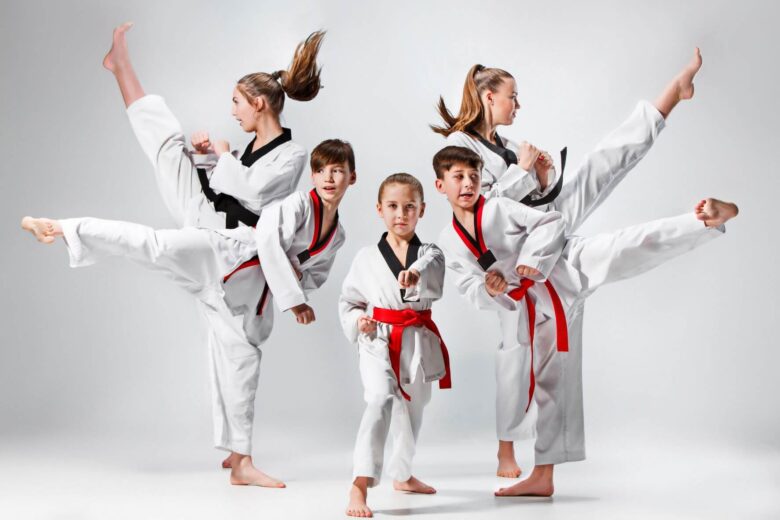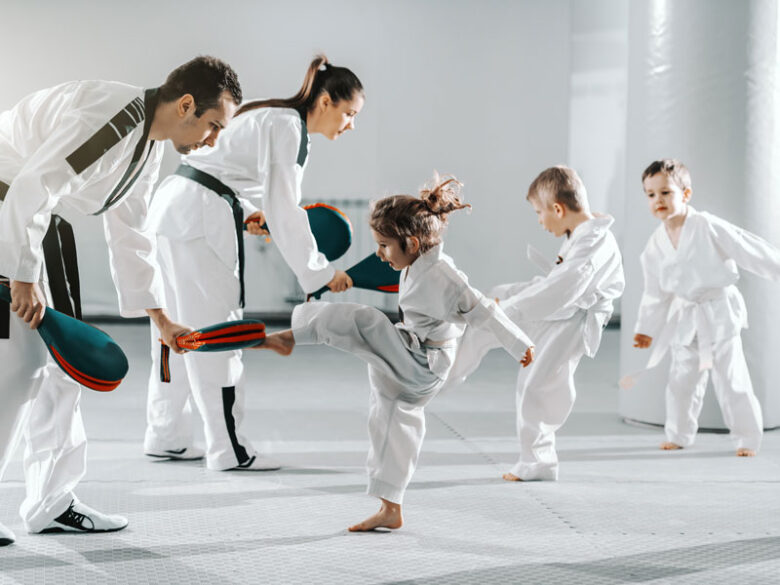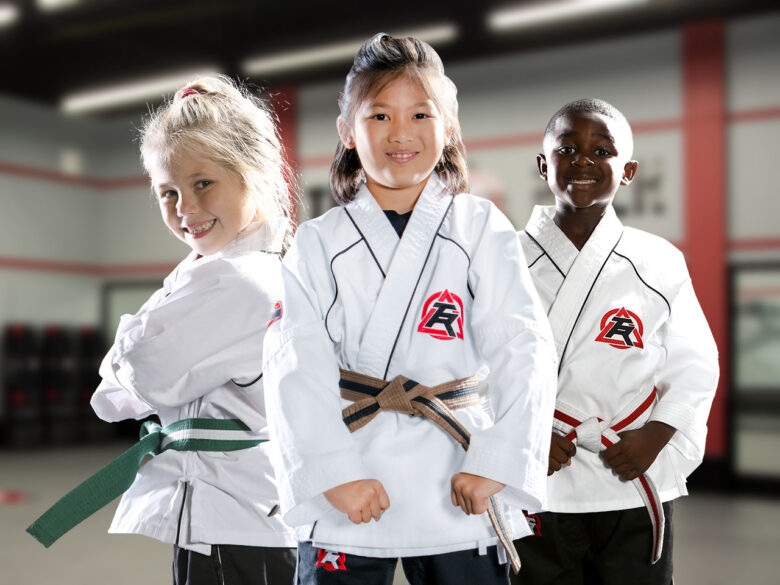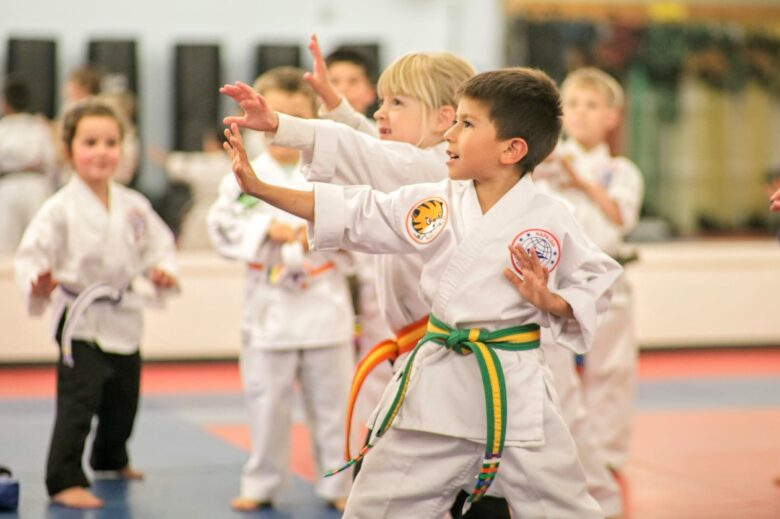Activities that support young children’s physical and mental development are extremely important in the fast-paced world of today. The distinctive and all-encompassing approach that kids martial arts offer to molding young brains makes it stand out like a light. Kids martial arts teach discipline, resilience, and emotional intelligence in addition to being more than just physical training. The transforming potential of children’s martial arts is explored in this introduction, which emphasizes the significant influence it has on the mental and physical growth of young people.
Contents
The Essence of Kids Martial Arts
The essence of kids martial arts lies in its multifaceted approach to child development. It incorporates a holistic philosophy that covers mental, emotional, and social development in addition to the physical approaches. Kids martial arts provide a stimulating environment where kids may learn important life lessons like discipline, respect, and attention in addition to learning how to defend themselves. In addition to improving their physical skills, young people can develop resilience, self-assurance, and emotional intelligence in this supportive atmosphere. Kids martial arts are fundamentally about molding well-rounded people by imparting teachings that last beyond the dojo and have a positive effect on many aspects of a child’s life.

Source: nannymcphee.co.uk
Building Discipline and Focus
Kids martial arts serves as an exemplary tool for instilling discipline and fostering focus in young minds. Children acquire the virtue of discipline through rigorous training, following rules, and following martial arts principles. They understand the value of paying attention to directions, practicing consistently, and showing respect for both teachers and other students. Furthermore, as kids work to improve their moves, the repeated nature of martial arts methods helps to develop focus and concentration. In addition to improving their martial arts abilities, this concentrated practice and discipline leads to increased self-control, tenacity, and concentration in other spheres of their lives.
Fostering Resilience and Emotional Intelligence
Kids martial arts serve as a powerful stimulant for developing their emotional intelligence and resilience. This approach teaches young people to keep going despite problems by exposing them to challenges, setbacks, and steady advancement. This builds resilience in the participants. Children gain emotional control, stress tolerance, and mental toughness by overcoming these obstacles in a nurturing setting. Martial arts instruction that is disciplined and based on positive reinforcement also helps to improve emotional intelligence. Children develop confidence and self-awareness as well as a greater understanding of their emotions and how to manage them. Kids martial arts equip kids with the mental and physical skills they need to overcome challenges, overcome hardships, and build a strong sense of emotional intelligence that is essential to their overall development.

Source: grkids.com
Physical Fitness and Overall Well-being
Kids martial arts is an essential tool in encouraging children’s physical health and general well-being. Martial arts exercises improve children’s strength, flexibility, agility, and cardiovascular endurance through rigorous training routines. These physical activities not only promote better physical health but also develop lifelong good habits. Additionally, martial arts training’s comprehensive nature guarantees a holistic approach to fitness that works on the body and the mind. Children who practice martial arts regularly report feeling more energized, less stressed, and having better sleep patterns—all of which contribute to their improved general well-being. Kids martial arts combine mental and physical discipline to create a balanced, healthy lifestyle that nurtures the body and mind at the same time.
Social Skills and Teamwork
Kids martial arts provide a special setting for developing cooperation and social skills in kids. Young martial artists get social skills from their instructors, fellow students, and the larger martial arts community in the dojo environment. Children participate in group activities, cooperative exercises, and partner drills in this setting, which promotes respect, friendship, and communication skills. Martial arts training promotes cooperation by highlighting the value of helping and learning from one another to accomplish shared objectives. Children learn important social skills including empathy, cooperation, and dispute resolution through these exchanges. Furthermore, friendships, self-esteem, and a sense of duty towards others are all enhanced by being a part of a positive martial arts community.

Source: tigerrockhagerstown.com
Academic Performance and Cognitive Development
Kids martial arts training has been shown to improve children’s cognitive development and academic achievement. Martial arts training requires discipline and focus, which improves concentration and attention span—two critical components of effective learning. Regular martial arts exercise improves one’s memory retention and problem-solving ability. Additionally, children’s academic achievements can benefit from the disciplined nature of martial arts routines as they assist them in developing organizational skills and the capacity to follow instructions systematically. Research has indicated that practicing martial arts presents mental demands that increase brain activity and improve cognitive performance.
Parental Role and Support
When it comes to encouraging and supporting their children’s martial arts adventure, parents are extremely important. Their engagement includes active participation, encouragement, and direction in addition to getting the kids enrolled in classes. Parents act as emotional support systems and motivators for their kids’ martial arts aspirations. Encouraging youngsters to pursue martial arts by attending lessons, expressing interest in their progress, and acknowledging their accomplishments helps to strengthen their dedication and enthusiasm. In addition, parents serve as role models for their children, setting an example of discipline, perseverance, and respect. The concepts taught in martial arts classes are further reinforced when a good and encouraging environment is established at home.

Source: santabarbaradojo.com
Success Stories and Testimonials
Kids martial arts success stories and testimonials are compelling accounts that demonstrate the practice’s transformative impact on young people. These narratives frequently highlight the amazing accomplishments, maturation, and character development that kids who practice martial arts undergo. Inspired narratives of martial arts’ beneficial effects on a child’s life can be found in the testimonies of parents, instructors, and students. They provide examples of how discipline, confidence, focus, and physical fitness can all be improved with regular practice. Testimonials and success stories serve as inspiration for young martial artists who aspire to be practitioners, showcasing the tremendous potential for personal development within the context of children’s martial arts.
Conclusion
In conclusion, kids martial arts emerges as a holistic and transformative practice that intricately shapes young minds. Beyond the physical techniques, it gives kids fundamental life lessons like self-control, concentration, resilience, and emotional intelligence. Children who receive organized instruction not only gain life skills that are useful outside of the dojo but also learn self-defense. The many advantages of kids martial arts include increased mental and physical growth, better academic achievement, better social skills, and increased physical fitness. Furthermore highlighting the significant influence martial arts have on the lives of young practitioners are parental support, success stories, and testimonials. Kids martial arts are all things considered, an effective means of raising well-rounded children by giving them the skills and values that are sorely needed for success and development in a variety of aspects of life.
